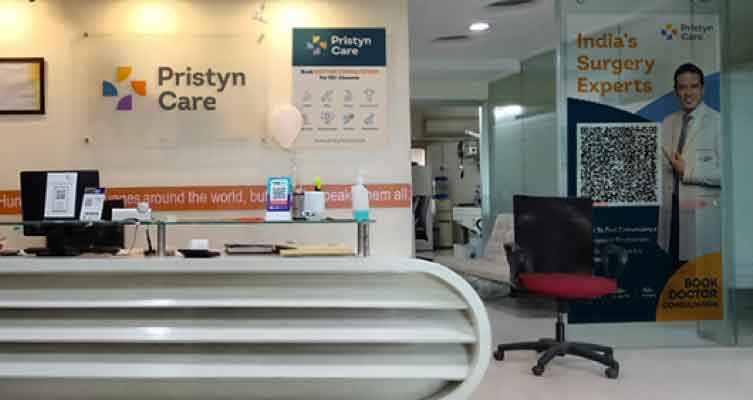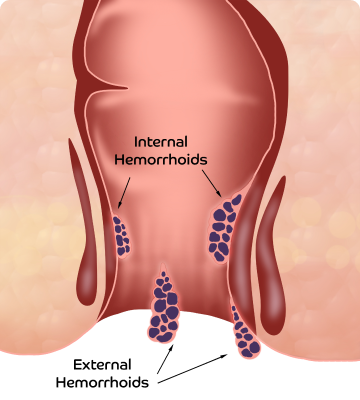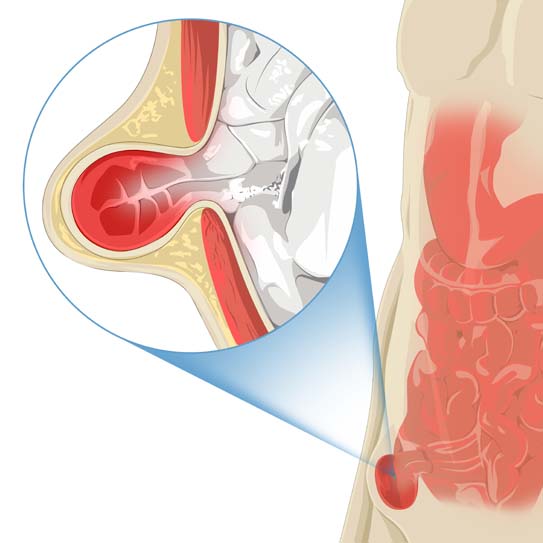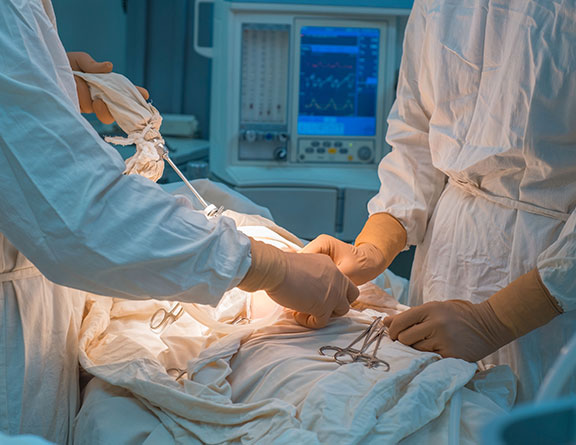What are the benefits of undergoing minimally invasive and advanced inguinal hernia surgeries?
Laparoscopic surgery is a minimally invasive approach to repair a hernia where the laparoscopic surgeon uses not more than 3 very small incisions. The surgeon inserts a laparoscope through the incision which provides a detailed view of the inside of the abdomen. The protruded hernia is pushed back and the abdominal wall is strengthened with a mesh to prevent the chances of occurrence of an inguinal hernia in the future. In recent times, more and more healthcare experts are shifting towards leveraging laparoscopic or minimally invasive hernia repair surgery clearly for the benefits of the procedure. Some of the key benefits of the surgical procedure are:
Smaller incisions
– Unlike conventional surgery for inguinal hernia treatment, minimally invasive laparoscopic surgery involves much smaller incisions. As such, the chances of scars and wounds are much lesser too.
Faster recovery
– A person undergoing open surgery for inguinal hernia repair requires at least two weeks to recover fully and resume his or her regular tasks. However, recovery in the case of laparoscopic surgery is much simpler and faster. Since the surgery does not involve any major cuts, the person can get back to regular work life in just 3-4 days.
Reduced complications
– The chances of risks and complications in the case of a laparoscopic is much lesser than in open surgery for inguinal hernia repair. If the patient diligently follows the advice and post-operative care tips given by the doctor, there is a very good chance that the patient may recover well without any complications. If you are suffering from symptoms that indicate the presence of an inguinal hernia, you can consult with experienced inguinal hernia doctors in Noida and undergo effective laparoscopic surgical treatment.
What happens if you do not get inguinal hernia treatment in time?
Like any other health problem, hernia too gets worse if treatment is not provided in time. What starts as a simple bulge, may get worse over time and turn into something serious if not provided with adequate treatment. Delaying inguinal hernia treatment may result in severe complications such as hernia strangulation, incarceration of hernias and even intestinal blockage. The hernia in all conditions may not get larger if not provided with treatment, but it will surely not grow smaller. The risks of an untreated inguinal hernia never come with warning signs. Whether it’s the incarceration of an inguinal hernia or strangulation, the complications appear suddenly, which often needs the patient to be rushed to the hospital in an emergency.
If you do not treat inguinal hernia in time, it may become challenging to manage the hernia, the inguinal hernia may become painful and the patient may even face difficulty to move or walk even a short distance. Pristyn Care doctors for inguinal hernia treatment never advise waiting with the inguinal hernia symptoms or delaying its treatment at any cost. Our expert inguinal hernia doctors always recommend the patients to undergo surgical treatment when the symptoms are at the initial stage because sooner or later, the patient has to undergo surgery to treat the inguinal hernia.
How can Pristyn Care help you?
Pristyn Care houses some of the top hernia specialists of the country who have years of experience in delivering laparoscopic surgical treatment for inguinal hernia with a success rate. Pristyn Care is associated with the top hospitals in the that are equipped with state-of-the-art facilities required to perform advanced surgeries for inguinal hernia treatment.
General Surgeons / Laparoscopic Surgeons working with Pristyn Care do a thorough consultation in the case of every patient to understand the health condition and then determine the minimally invasive approach for inguinal hernia treatment.
Pristyn Care strives to make the whole surgical experience for every patient a seamless one. To ease out the commuting process for our patients, we also provide free cab facilities to bring you from home to the hospital and help you return back home after the surgery. A free-of-cost follow-up is provided to the patients within the first seven days after the surgery. Consult with Pristyn Care inguinal hernia doctors who are experts in delivering the best surgical healthcare ensuring effective outcomes with almost zero complications.
Types of Inguinal Hernia:
1. Direct inguinal hernia
Direct inguinal hernias are the second most common type of hernia that appears in the groin. A direct inguinal hernia appears directly in the medial from the superficial epigastric blood vessels in the groin area. Similar to any other form of hernia, a direct hernia also involves a defect in a weak spot in the abdominal wall.
2. Indirect inguinal hernia
An indirect inguinal hernia is lateral in nature, which means they occur outside the epigastric vessels. Indirect inguinal hernias travel along the inguinla canal. These hernias often result from birth defects or premature births. But it can also occur in people of any other age group. Males are more susceptible to developing indirect inguinal hernias.
3. Incarcerated inguinal hernia
When an intestinal or abdominal tissue gets trapped in the hernia sac and cannot be pushed back, it causes incarcerated hernia. It is very difficult to make an incarcerated hernia return to its original compartment. An incarcerated hernia is a common emergency condition.
4. Strangulated inguinal hernia
A strangulated inguinal hernia is a life-threatening condition where the blood supply to the hernia tissues is cut off. When a hernia becomes strangulated, it causes the following signs:
- blood in stools
- fatigue
- fever
- acute pain in the abdomen
- nausea and vomiting
- constant fever
Anyone who suspects hernia strangulation should seek medical help without delay.
Interesting facts about Inguinal Hernia
- An inguinal hernia can appear in people of any age group.
- 5 out of every 100 children are born with an inguinal hernia.
- Inguinal hernia is hereditary. If any of your immediate family members have an inguinal hernia, chances are quite high that you will get one too.
- Inguinal hernias are more common in men than in women.
- Inguinal hernias can remain stable or manageable, but they don’t heal themselves or get better with time.














.svg)









